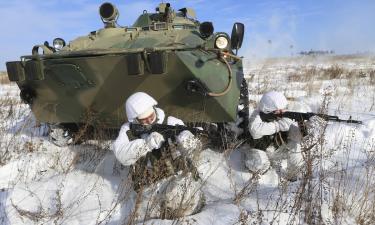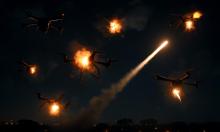USA's National Defence Strategy: No rest for the wicked
The US Department of Defense published an updated National Defence Strategy (NDS) — a policy document that embraces military, political and economic prospects for the near and medium term.
Gray zones and Preemptive Nuclear Strike
Traditionally, the US issues new editions of the National Defence Strategy at least once during the tenure of every US president. Unlike previous Strategies, the Biden-Harris Strategy alludes to the unwillingness of the United States to fight for values of democracy around the world.
Washington's previous doctrinal documents designated "democracy” as the only right form of government. Democracy was opposed to "autocracy.” These concepts were identical to good and evil, but the new NDS clearly says that there are autocracies with which it is possible to cooperate.
In a nutshell, the circle of US allies in the Biden Strategy has become much wider than in the National Defence Strategy of Donald Trump or even Barack Obama.
To ensure the national interests of the United States, the Americans are ready to give up on their basic principle not to interact with undemocratic regimes. They now regard pro-American autocracies as friendly states.
From now on, democracy does not appear on list of USA's basic values. It is freedom and well-being that remain. The authors of the document conclude that it is the global leadership of the United States that is required to promote these values around the world.
The Biden Doctrine defines China as America's strategic competitor. The document does not state this point blank, but American strategists see China as the only great power capable of competing with the United States.
It is worthy of note that the document makes all references to China in a respectful manner. Having de facto recognised the current international world as bipolar, Washington treats Beijing as a rival with which one should cooperate rather than fight.
The above comes into sharp contrast to what the National Defence Strategy says about Russia. The Americans see Russia as a threat to the Euro-Atlantic security system. Despite the generally restrained tone of the document, the desire to curb Russia's influence means that the USA will continue provoking new military threats in post-Soviet space.
To sum up, Washington confronts two rivals at the same time — China and Russia. Moreover, the Americans see cooperation between Russia and China as a threat to their national security.
The United States will continue their efforts to support friendly states by attracting investments from non-state funds and private business.
One can also see the desire of the Americans to create a global security system based on the establishment of partnerships between US-led alliances — NATO and allies in the Asia-Pacific region (primarily Japan and South Korea). The Indo-Pacific region is designated as a priority area of American foreign policy.
Gray zones
The spirit of the document echoes global confrontation during the Cold War era — the West vs the East:
- China,
- Russia,
- Iran,
- North Korea
- other "hostile states".
The space in between is referred to as "gray zones" — the territories that the Americans have not taken full control of. In order to accomplish this goal, one requires to take additional political, economic and other non-military measures.
Intelligence services of the United States and other Western nations will work to carry out information and cyber operations. Financial pressure will be used as well — anything will do to subdue the gray zones.
The use of nuclear weapons
The new National Defence Strategy also declares the right of the United States to launch nuclear strikes first, disregarding the policy of retaliatory strike. Washington has thus made it clear that it reserves the right to resort to the use of its nuclear arsenal at its sole and absolute discretion.
The Pentagon and the White House have released the document just before the congressional elections. The Strategy does not mention any internal American problems. This also indicates attempts to make US voters believe that the United States remains the only prosperous country the mission of which is to promote freedom in the world.
USA's National Defence Strategy has become more outspoken and cynical. It announces a new round of global confrontation, which we are already witnessing today.
Subscribe to Pravda.Ru Telegram channel, Facebook, RSS!





